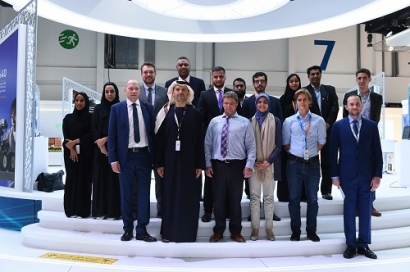
They will conduct research and development to determine the optimal TES material to achieve dispatchable solar electricity with the Stirling CSP system. The development of a reliable and highly efficient TES and its integration with the Stirling CSP system is of key importance for the product. It is believed that this storage solution combined with Cleanergy´s Stirling engines will produce scalable and dispatchable renewable electricity at very competitive cost, thanks to the system's modular design.
“This collaboration will focus on identifying the best performing phase-changing PCM materials that will enable Cleanergy's Stirling CSP System to produce and store solar energy for extended periods of time," said Dr. Steve Griffiths, Interim Executive Vice President for Research at Khalifa University of Science and Technology.
The Masdar Institute Solar Platform (MISP) – which is a unique CSP and TES research facility that enables researchers to demonstrate and validate novel CSP-related systems in desert harsh environment – was launched in 2015 to spur the development of CSP and TES technologies. The institute's strong capabilities in energy storage materials characterization are what attracted Cleanergy to partner with the advanced energy and sustainability-focused university to explore TES materials for its innovative Stirling-CSP system.
"Innovations in TES are critical to the advancement of sustainable energy solutions in the UAE and around the world," said Dr. Nicolas Calvet, Assistant Professor of Mechanical and Materials Engineering, Masdar Institute, and the principal investigator on the project.
"Our collaboration with Cleanergy aims to generate the knowledge and technologies needed to take advantage of the highly efficient Stirling engine and rapidly move Cleanergy's solar thermal energy technologies to the market," Dr. Calvet added.
A demonstrator of the TES system will be presented in June 2018.

